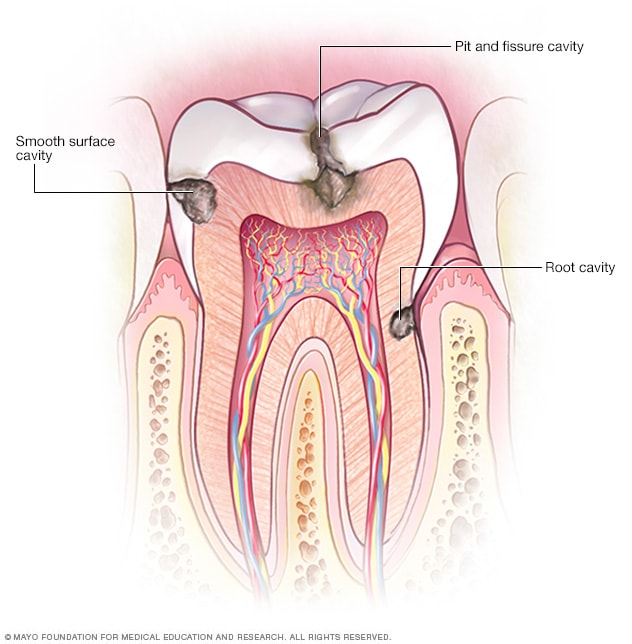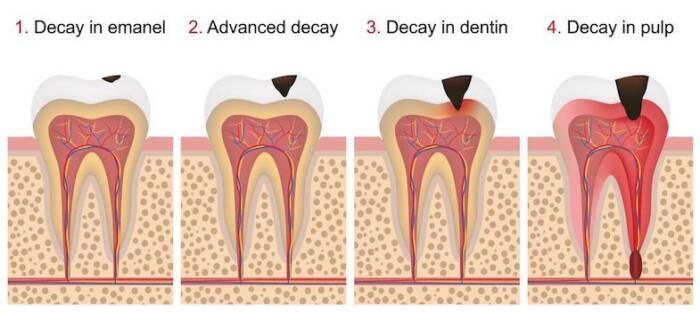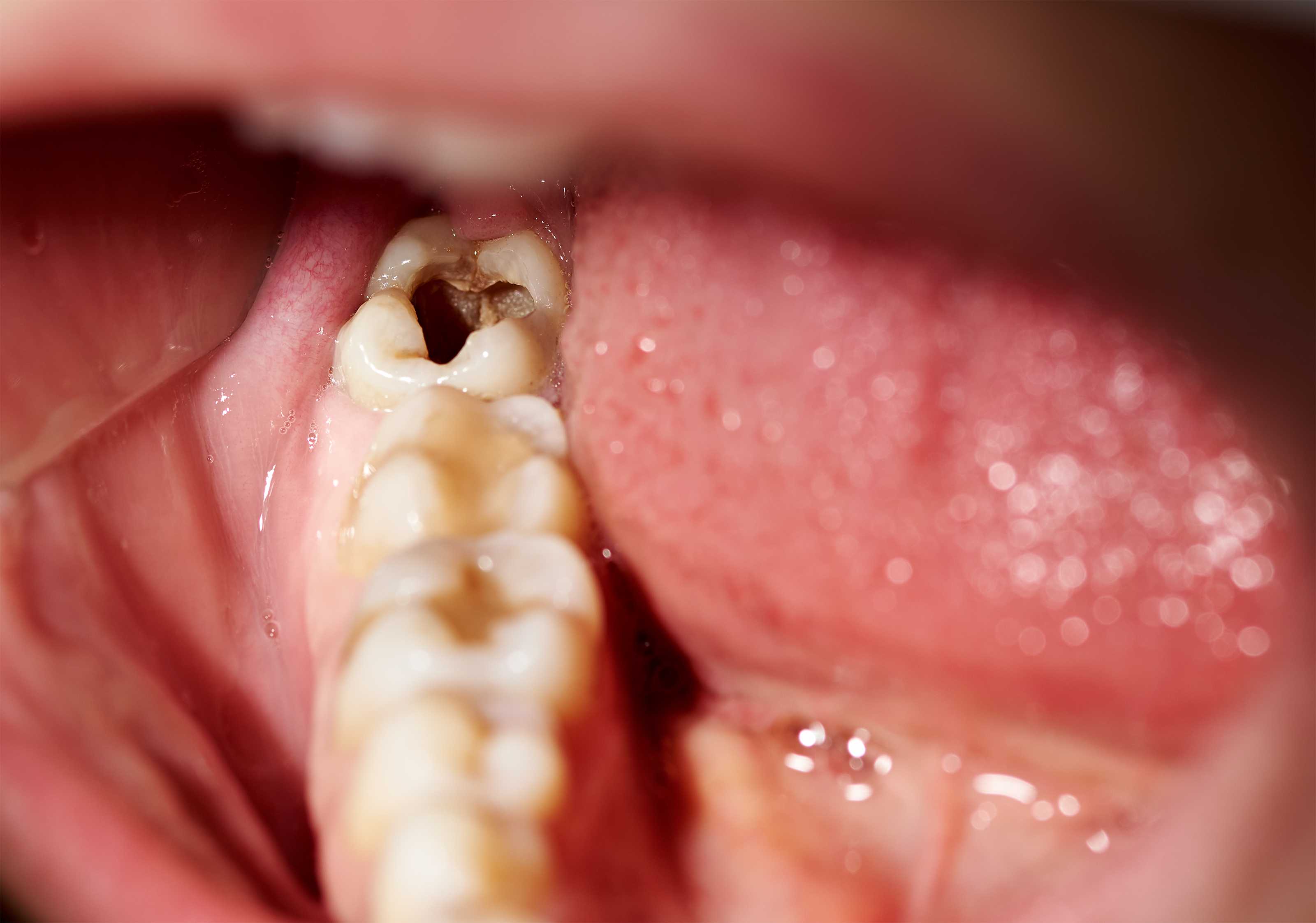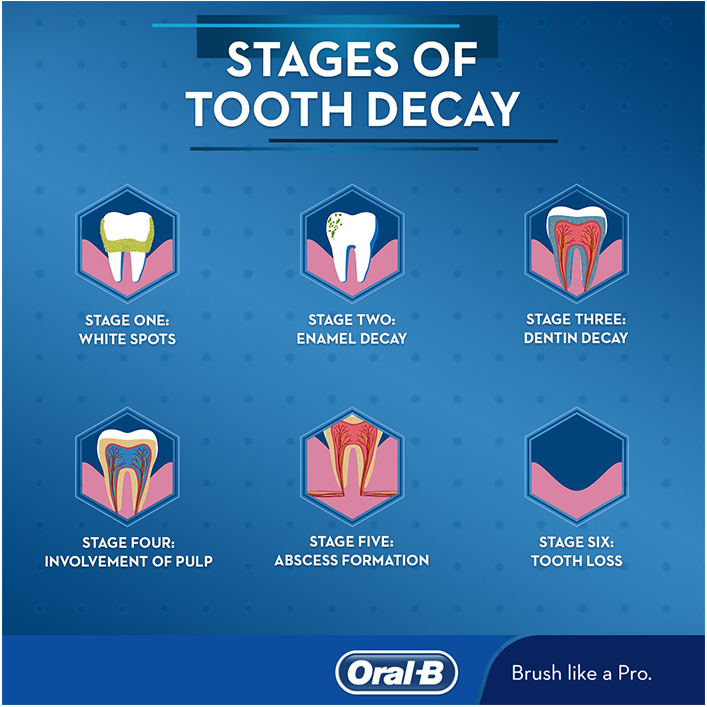When a tooth first starts to decay it involves the weakening of your tooth enamel which is something that occurs every day when oral bacteria gather. The process of tooth demineralization cavity formation takes place whenever an acidic oral environment exists.
 What Is Tooth Decay And How Does It Happen Ask Doctor K Ask Doctor K Harvard Medical School
What Is Tooth Decay And How Does It Happen Ask Doctor K Ask Doctor K Harvard Medical School
Dental abscesses which are collections of pus at the end of the teeth or in the gums may develop.

How does tooth decay happen. Dry mouth could occur due to poor fluid intake medications and some medical conditions. This state is created by acids produced by bacteria living in dental plaque as they consume sugars use link. Untreated tooth decay may cause infection extreme pain and the loss of tooth.
You may not think of teeth as living but healthy teeth are alive. Most importantly dentists can notice signs of decay before the decay worsens. Every time you eat or drink anything containing sugars these acids attack the teeth and start to soften and dissolve the enamel.
A Decay formation is a cumulative process. If plaque is allowed to build up it can lead to problems such as holes in the teeth dental caries and gum disease. Tooth decay is characterized by the breakdown of enamel in the tooth caused by acids produced by bacteria.
When this biofilm matures it may become cariogenic meaning that it causes decay. Its caused by the activity of. Having a dentist monitor and clean ones teeth also helps remove plaque.
Regularly brushing and flossing teeth removes plaque. On your teeth and gums a plaque is always forming which contains bacteria. Bacteria feed on the sugars found in your food.
Erosion promotes the formation of holes which provide spaces for bacteria. It happens when bacteria in your mouth make acids that attack the enamel. The primary causes of tooth decay are bacteria and food.
As you eat sugar it creates acids that can attack your teeth within 20 minutes after eating. Acid develops from the bacteria attacking and damaging the enamel. As its name implies tooth decay is a condition in which the build-up of acidic material in a persons mouth causes the outer layers of their teeth to slowly begin to erode and dissolve.
If tooth decay is not treated it can cause pain infection and even tooth loss. Plaque is a sticky layer of bacteria that forms on teeth. An article in the Journal of the American Dental Association JADA state that tooth decay occurs due to a buildup of plaque on a tooth.
Bruxism is a condition where teeth are eroded by excessive grinding action. Tooth decay can lead to cavities dental caries which are holes in your teeth. Teeth are made up of a combination of hard and soft tissue.
This causes a biofilm called dental plaque to form. Dry mouth also helps bacteria to accumulate leading to tooth decay. When the nerves in the pulp of the tooth which is the inner layer.
Decay happens when sugars in food and drinks react with the bacteria in plaque forming acids. Tooth decay is damage to a tooth caused by dental plaque turning sugars into acid. Tooth decay also known as a cavity or cavities occurs when bacteria living in your mouth make acid that then begins to eat away at your teeth.
Tooth decay is damage to a tooths surface or enamel. Tooth decay is damage that occurs to your teeth which can potentially result in cavities dental abscesses or even tooth loss. This acid creates holes in the teeth also known as tooth decay.
Five Signs You Have A Cavity And What You Need To Do Jeff M Morrison Associates
 Cavities Tooth Decay Symptoms And Causes Mayo Clinic
Cavities Tooth Decay Symptoms And Causes Mayo Clinic
 Teeth Dental Care For Children
Teeth Dental Care For Children
 Tooth Decay Symptons Causes Treatment Nearby Dental
Tooth Decay Symptons Causes Treatment Nearby Dental
 Is It Possible To Reverse Tooth Decay Governor S Park Dental Group
Is It Possible To Reverse Tooth Decay Governor S Park Dental Group

 Preventing Tooth Decay Cavities Hayner Dental
Preventing Tooth Decay Cavities Hayner Dental
 Tooth Decay Causes Treatment Prevention Of Decay And Tooth Loss
Tooth Decay Causes Treatment Prevention Of Decay And Tooth Loss
 Tooth Decay Stages 5 Stages And How To Treat Each
Tooth Decay Stages 5 Stages And How To Treat Each
 How Does Tooth Decay Happen Frenchtown Dental
How Does Tooth Decay Happen Frenchtown Dental
 Microbial Diseases Of The Mouth And Oral Cavity Microbiology
Microbial Diseases Of The Mouth And Oral Cavity Microbiology
 Root Cavity Causes Symptoms Diagnosis And Treatment
Root Cavity Causes Symptoms Diagnosis And Treatment



No comments:
Post a Comment
Note: Only a member of this blog may post a comment.